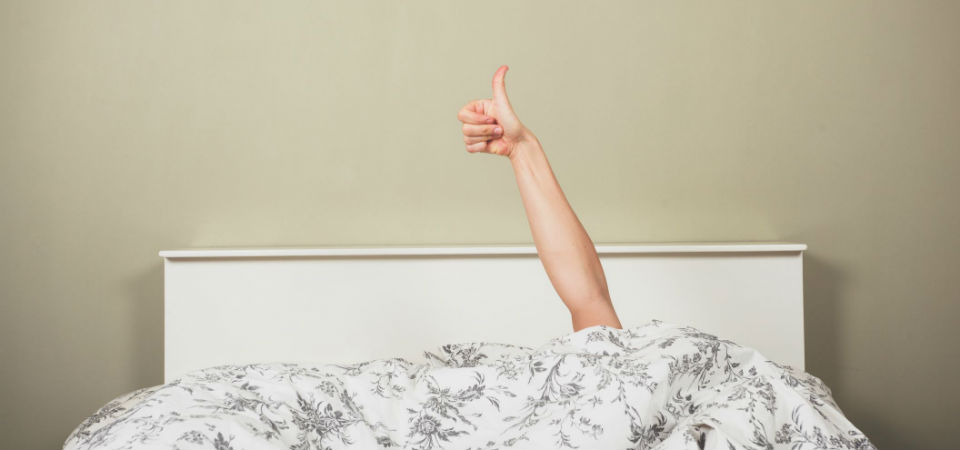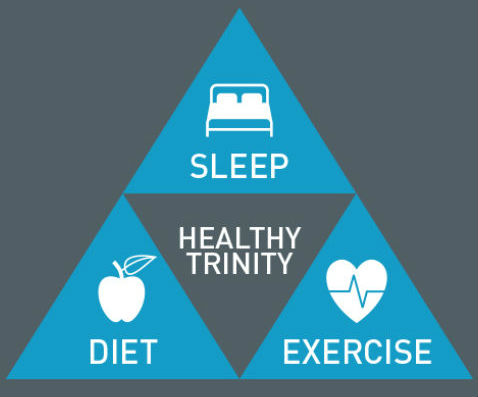The positive changes you make this January to what you eat and how much you sweat, could be undone by not allowing your body and mind to recharge properly, according to Dr Iuliana Hartescu, of Loughborough University’s Clinical Sleep Research Unit.
Dr Hartescu has studied the benefits of a restful night and the relationship between sleep, exercise and diet, which, she says, operate as a 'health trinity'.
She said people know a great deal about eating the correct food and how to train their bodies, but not enough about how to train their sleep patterns.
“Sleep, physical activity and diet are very much interlinked,” said Dr Hartescu.
“One affects the others, they are not independent of each other.
“So, if before deciding on a lifestyle change, for example before embarking on a diet or wanting to change your physical activity habits, you put your sleep first which may be the easiest, it will go a long way in helping you maintain the other two behaviours.
“When you’re more rested you’re more likely to be physically active, more likely to eat at the right times of the day, and you’re more likely not to let fatigue interfere with your motivation to stick to your diet.”
Early morning visits to the gym might appear a worthy lifestyle choice, but compromising on sleep is the last thing people should be doing if they want to feel at their best.
And training yourself to sleep better takes time, said Dr Hartescu.
With practice better sleep will improve your wellbeing, and the benefits will boost your energy levels and dietary habits.
“All of the habits around sleep time are called sleep hygiene and they’re part of something bigger called cognitive behavioural therapy,” she said.
“But sleep hygiene can be adapted by anybody to change their sleep behaviour, which can be very useful, and which can result in better sleep quality and quantity.”
Training involves habitual changes and Dr Hartescu recommends following a set routine each night, and making the bedroom an exclusive two-activity environment.

“Use your bedroom environment only for sleep and sex...”
She said the habits to avoid before sleep include:
- Watching lit screens such as phones, televisions or computers in the two hours before bedtime
- Work tasks or anything which taxes your brain
- Eating in bed
- However, do: Allow yourself half-an-hour before bedtime to think through any issues you’ve had that day
“Use your bedroom environment only for sleep and sex,” said Dr Hartescu.
“Otherwise your mind won’t disengage and follow the sleep process.
“Reinforcing good habits around sleep time can help train you to sleep better.”
She added: “If these behaviours happen in bed and at bedtime, your mind will make unhelpful associations in your bedroom environment.
“So, instead of your bedroom environment being only related to sleep and sleep related behaviours your mind will engage in other expectations.
“Expectations of food.
“Expectations of work.
“So, it’s probably best to leave these behaviours at least for couple of hours before falling asleep.”

Loughborough University’s Christmas and New Year health and wellbeing campaign is aimed at using the knowledge and experience of academics and professionals to give advice about physical and mental wellness over the festive season and into next year.
Follow the latest campaign content by searching for the #LboroExperts hashtag on Twitter, or on our Facebook page and YouTube channel.
ENDS
